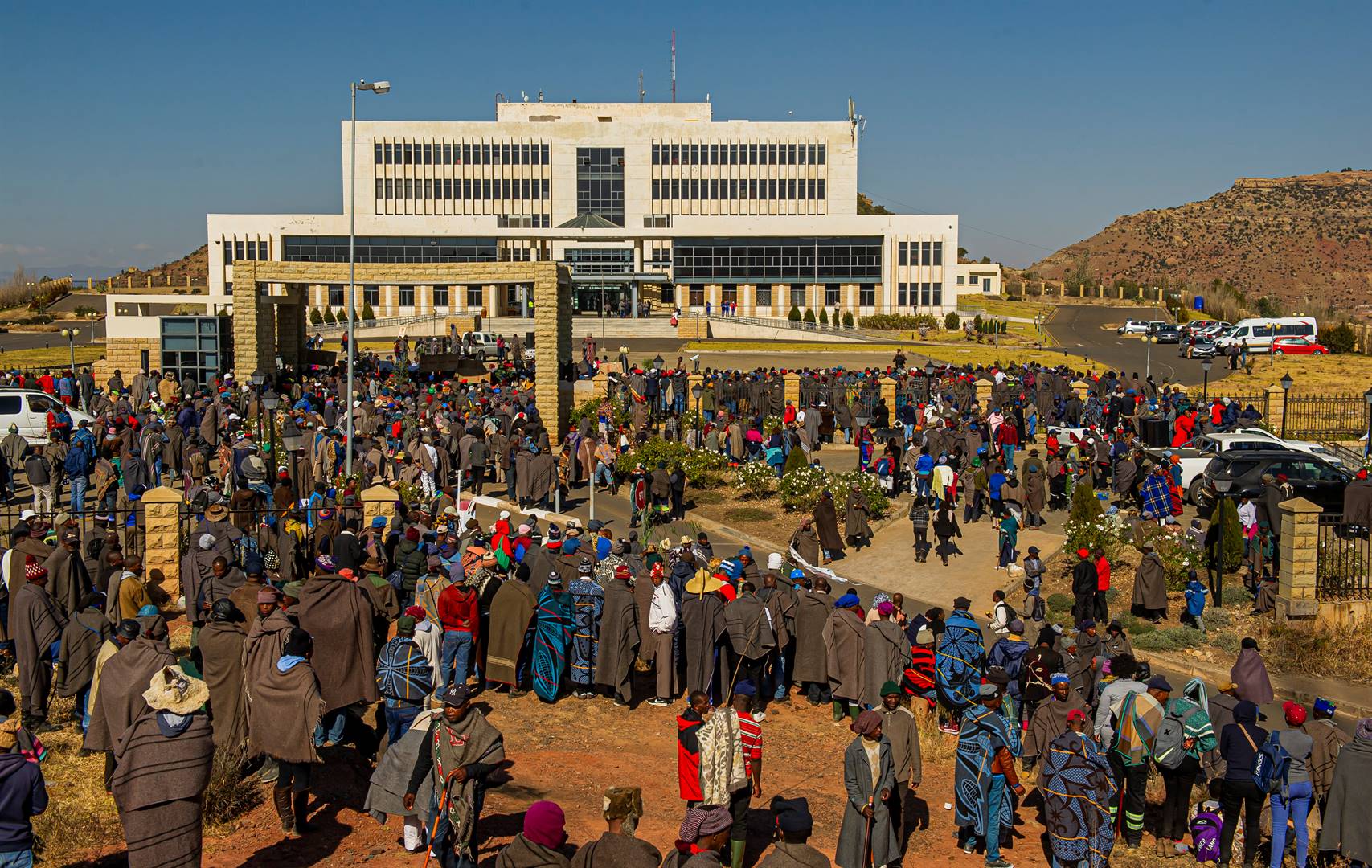Mohloai Mpesi
Chief Justice Sakoane Sakoane has warned the government that the failure to adequately support the judiciary is an affront to the constitution.
“I can only hope that the dire financial situation which the judiciary is presently experiencing will be seriously addressed sooner rather than later,†Sakoane said on Wednesday.
He was speaking at the ceremonial opening of the High Court.
The constitution states that the courts shall in the performance of their functions be independent and free from interference and subject only to the constitution and any other law.
It further states that the government shall accord such assistance as the courts may require to enable them to protect their independence, dignity, and effectiveness, subject to the constitution and any other law.
Adequate funding of the judiciary is a key element in ensuring and safeguarding the independence of the judiciary and judges because it determines the conditions in which the courts and judges perform their functions.
An appropriate level of funding should, therefore, be made available to enable the judiciary to manage its functions properly.
The official opening of the high court is a once-yearly momentous occasion to mark the commencement of the judicial calendar but the ceremony had not been held for the past two years due to the Covid-19 pandemic.
This year’s ceremony was graced by the presence of the country’s first female chief justice who is now the first female deputy prime minister, Justice Nthomeng Majara, The United States ambassador, Maria E Brewer, United Nations (UN) resident coordinator, Amanda Khozi Mukwashi, and the head of the European Union (EU) delegation, Paola Amedei, among others.
Sakoane disclosed the judiciary’s strategy to tackle the backlog of criminal cases.
He said following the recruitment of more judges, the high court had resuscitated the criminal session rolls in terms of section 11(2) of the High Court Act of 1978.
“From today, there will be three judges on the session allocated cases on a rotational basis from session to session. This will provide space for dealing with murder and corruption cases on an expedited basis,†he said.
For the period from January 1, to December 31, 2020, the Lesotho Mounted Police Service (LMPS) recorded 898 murders in the country, according to the crime statistics report published by the Bureau of Statistics (BOS).
This averages out to 2.5 murders each day, at the rate of 44.7 murders per 100,000 people based on the 2016 population census.
The international homicide average rate is seven per 100,000.
This puts Lesotho in the top six of the most murderous countries in the world.
According to the ranking of the most dangerous countries in the world in 2021, by murder rate per 100,000 inhabitants, El Salvador was the most dangerous country worldwide, with a murder rate of 82.84 per 100,000.
The ranking was published by Statista, a German company specializing in market and consumer data, last month.
Sakoane also called upon the prosecution led by the Director of Public Prosecutions (DPP), advocate Hlalefang Motinyane, to do its duty of bringing all witnesses so that no case is postponed on account of unavailability of witnesses.
“As regards the so-called high profile cases, the difficulty in their speedy disposal is that some of them are assigned a special prosecutor who can only prosecute one case at a given time before one presiding judge,†Sakoane said.
He added: “Hearing these cases on a rotational basis does not only delay their completion but is costly both to the crown and the accused. In the process, witnesses might even die thereby compromising the attainment of justice.â€
He indicated that all these would have been avoided if, from the commencement of these cases, the provisions of the Speedy Trial Act of 2002 were strictly observed.
He said unnecessary and avoidable delays in the finalization of cases and delivery of the judgments make the justice system even more torturous to litigants.
As a mitigation measure, he said innovative processes such as court-annexed mediation had been introduced to ensure that only deserving cases are subjected to the rigours of the adversarial process.
“This initiative is working, but it has not resulted in a significant reduction of cases allocated for trial,†he said.
“Cognizant of this challenge and driven by an insatiable desire to provide excellent judicial services in line with our strategic goals, we are in the process of piloting a performance management system for judicial officers. We have started with Judges,†he added.
Chief Justice also disclosed that April 1, 2023, was the target date to roll out the pilot to judicial officers in subordinate Courts.
He said at the time the idea was introduced, judges immediately embraced it and expressed their willingness to account for their decisions whilst retaining their judicial independence.
“To this end, we have adopted a 90-day rule for delivery of written judgments and are equally clear on a minimum number of judgments each judge must deliver per quarter.
“This way, we are assured of a minimum number of written judgments to expect from each judge per quarter. We have commenced quarterly reporting sessions where each judge accounts for his or her work.â€
Sakoane also indicated that the focus was on the number of judgments delivered within and outside 90 days as well as the number of judgments reserved.
He said: “We are presently focusing on quantitative targets and will be graduating to qualitative targets once the system has outgrown the teething problems. This will ensure that we do not compromise quality simply to meet our targets.
“We are already seeing the results and expect an exponential increase in the delivery of written judgments once the system is fully implemented. We hope this will help to answer litigants’ outcry about delayed justice as well as cases that go on appeal without written reasons.â€
Summary
- Adequate funding of the judiciary is a key element in ensuring and safeguarding the independence of the judiciary and judges because it determines the conditions in which the courts and judges perform their functions.
- The official opening of the high court is a once-yearly momentous occasion to mark the commencement of the judicial calendar but the ceremony had not been held for the past two years due to the Covid-19 pandemic.
- According to the ranking of the most dangerous countries in the world in 2021, by murder rate per 100,000 inhabitants, El Salvador was the most dangerous country worldwide, with a murder rate of 82.

Your Trusted Source for News and Insights in Lesotho!
At Newsday Media, we are passionate about delivering accurate, timely, and engaging news and multimedia content to our diverse audience. Founded with the vision of revolutionizing the media landscape in Lesotho, we have grown into a leading hybrid media company that blends traditional journalism with innovative digital platforms.







